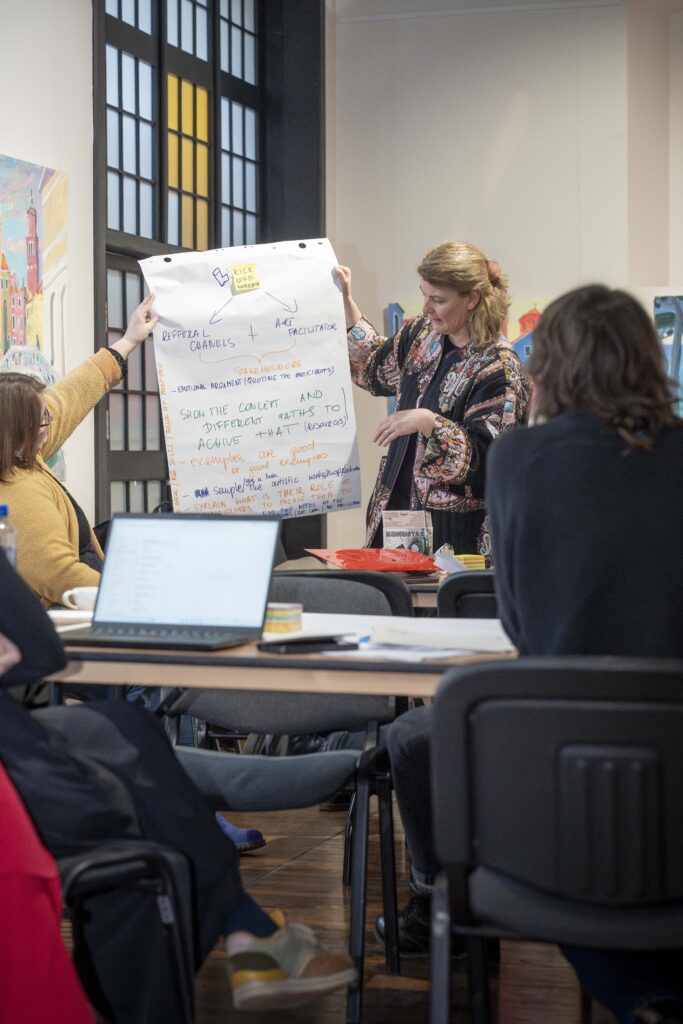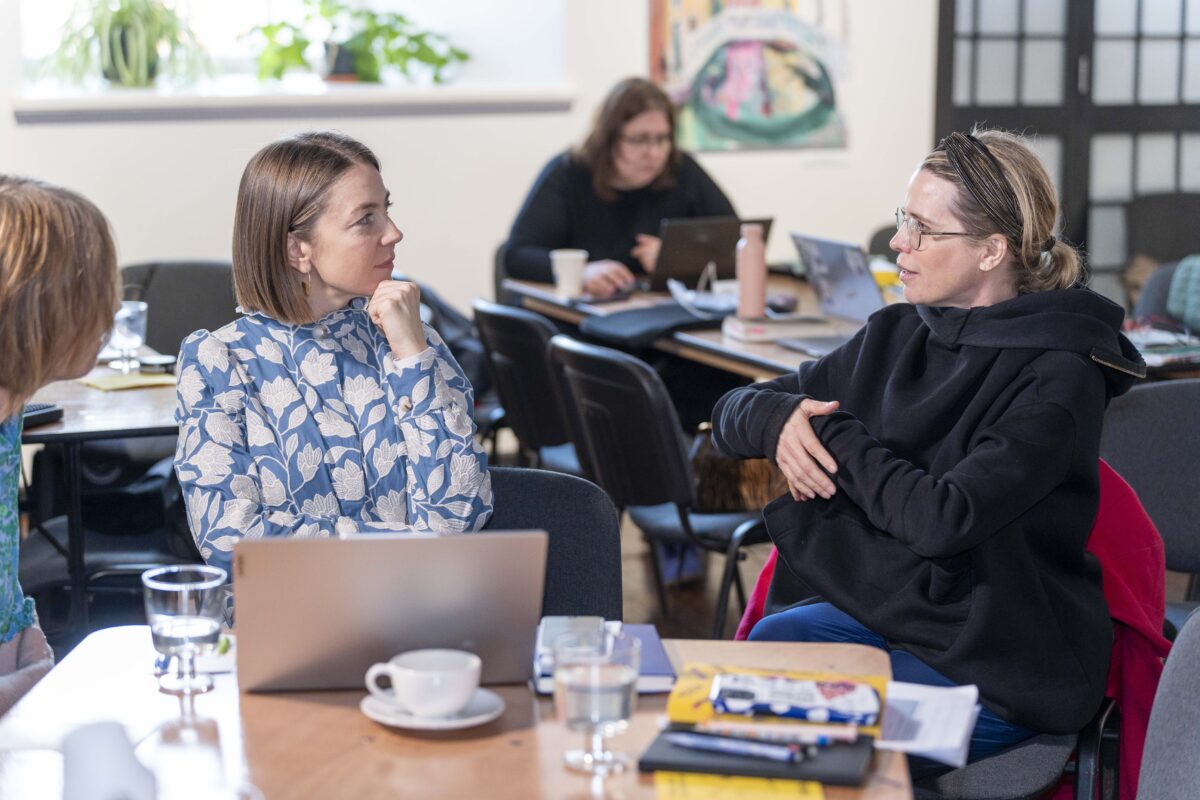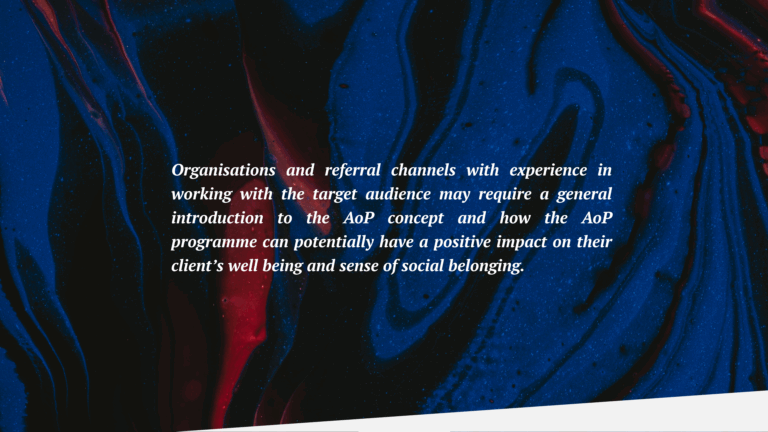When communicating with various stakeholders it is important to tailor information regarding the AoP programme to their field of interest, values, and priorities. Communication with stakeholders should be tailored, taking into consideration their knowledge of AoP programmes and/or target audience, and stakeholders’ level of involvement in the AoP programme. For example, when communicating with decision makers it is important to understand their perspectives and not only tailor communication but also to be conscious of and prepare for possible barriers or questions, they may have relating to AoP programmes.
When communicating with health and social care professionals, it would be appropriate to discuss AoP programmes expected health and social outcomes, and to emphasis the programme is a non-therapy approach to promoting mental health and wellbeing. Communication with culture and arts professionals may involve introducing them to new aspects of integrating culture into health promoting programmes as well as catering for a new target audience. Therefore, it would be appropriate to convey the positive effects cultural, and arts activities have on people’s health and wellbeing.
Organisations and referral channels with experience or working with the target audience may require a general introduction to the AoP concept and how the AoP programme can potentially have a positive impact on their client’s wellbeing and sense of social belonging.
If needed, help stakeholders make the case for how and why improved health and wellbeing is related to their core tasks and objectives. For example, within the employment sector, research indicates a link between elevated levels of wellbeing and better chances of going from being unemployed to being employed. When adapting information to distinct groups of stakeholders, it is important to ensure that the core information regarding the programme is consistent throughout.
Further to tailored communication with each stakeholder, a good additional approach to communicating with stakeholders is to host one or more knowledge transfer workshops or seminars where for example previous participants, link workers, facilitators, and/or experts as well as different stakeholders are invited to a dialogue, knowledge sharing and to try out selected AoP activities themselves. This makes the AoP concept more relatable for local stakeholders and helps to create a greater understanding of the programme’s potential benefits.
Communicate using clear and concise language, provide definitions or explanations of complex terms or terms that are specific to AoP (e.g. “link worker”, “referral channel”), and avoid using unfamiliar terms. Encourage open dialogue and active listening, taking note of the recipients’ input and feedback to gain a better understanding of their perspectives and commitment and to build on these perspectives to gain a shared understanding of the AoP programme.




